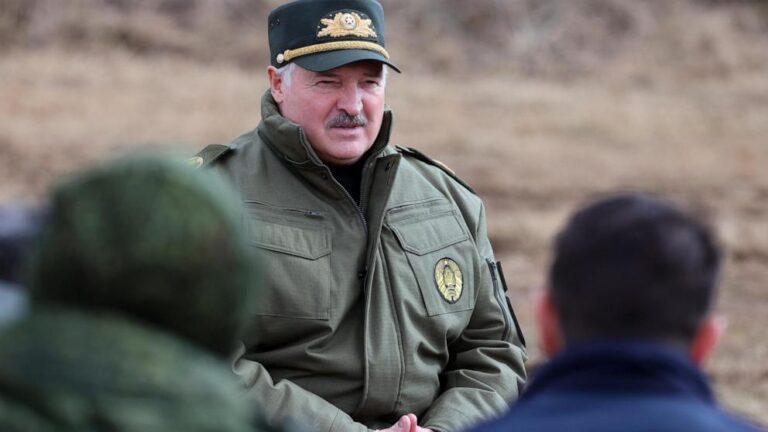Human rights activists claim that the Belarusian authorities are setting unacceptable conditions for the release of political prisoners, including the making of a public statement of repentance.
TALLINN, Estonia — Human rights activists on Monday accused Belarusian authorities of imposing unacceptable conditions for the release of political prisoners, including requiring them to admit their guilt and make public statements of repentance.
The accusations came just days after President Alexander Lukashenko promised to release those who are seriously ill or caught up in mass protests against his government in 2020.
Activists say the number of people released so far has reached at least 18, including opposition leader Rihor Kastusiu, who has serious cancer. The United States and European Union have welcomed the release of some political prisoners but have called on Belarus to release everyone imprisoned during the 2020 protests.
Some were released through amnesty, while others were released through pardons. Those who were pardoned had to publicly admit their guilt. According to the Viasna Human Rights Center, some political prisoners refuse to write such letters because they don’t believe they are guilty.
Belarus currently holds 1,420 political prisoners, including Nobel Peace Prize laureate Ales Bialyacki, and Viasna said more than 200 of them are seriously ill and in need of treatment.
Pavel Sapelka of Viasna suggested that only “dozens, not hundreds” of political prisoners were released following Lukashenko’s July 3 announcement, and that authorities are already filling vacant cells with new ones.
Lukashenko has cracked down on opposition parties and independent media since coming to power in 1994. A disputed 2020 presidential election saw him win a sixth term and spark the largest and longest-running protests in the country’s history.
The authorities responded harshly, arresting around 35,000 people, and many prominent opposition figures were jailed, with some fleeing the country.
Activists allege that authorities are creating torture-like conditions in prisons and depriving political prisoners of medical care, transportation, and access to lawyers and relatives.
“Despite the hellish conditions of detention in prison, some prominent Belarusian figures have not admitted their guilt, publicly repented or begged Lukashenko for mercy,” Sapelka said.

